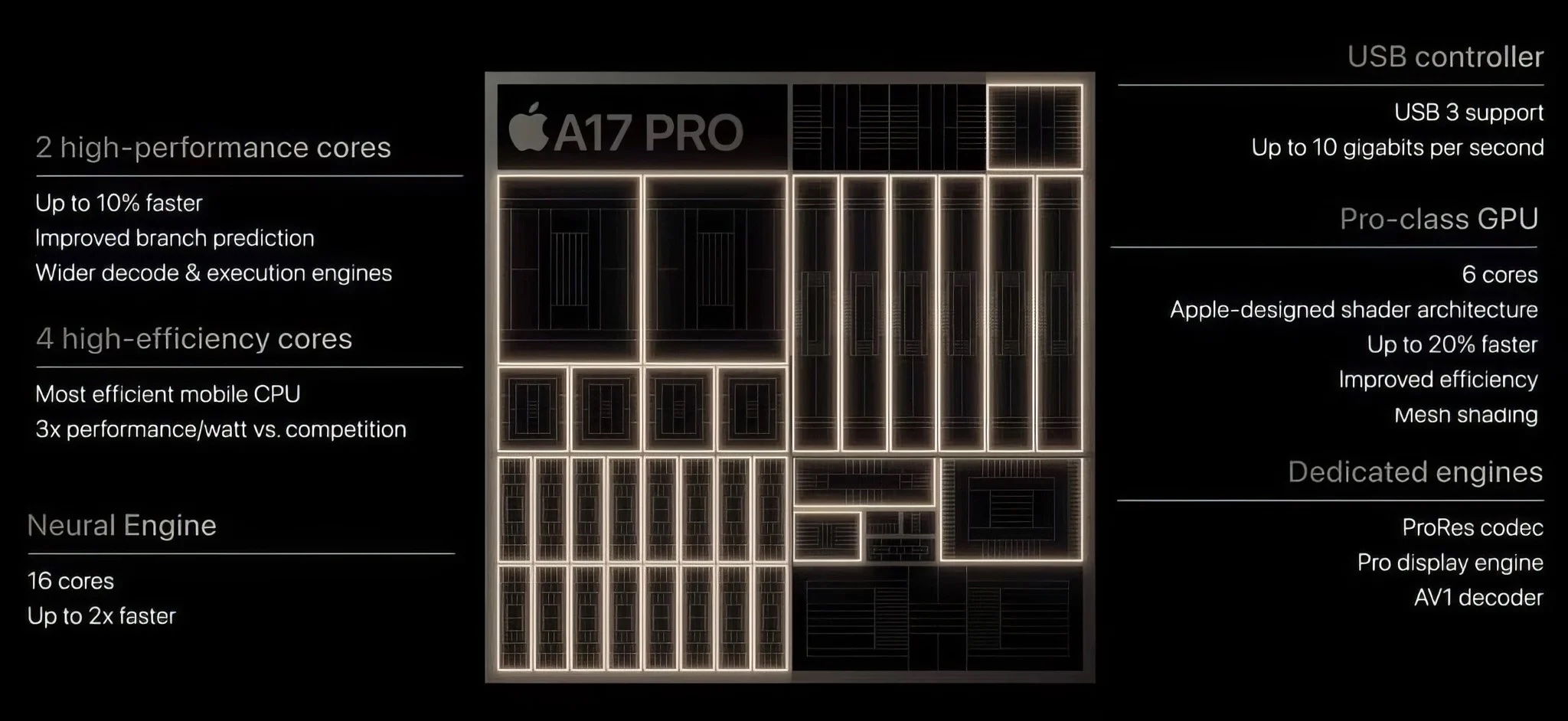Apple's iPhone 18 chip technology might have been announced as TSMC touts advanced 1.6nm fabrication
New chips for all.

iMore offers spot-on advice and guidance from our team of experts, with decades of Apple device experience to lean on. Learn more with iMore!
You are now subscribed
Your newsletter sign-up was successful
TSMC, the company that Apple employs to build some of the most important components in all of its best iPhones and other lineups, has announced a new generation of chip technology that could power the iPhone 18 and beyond from 2026.
The new technology, dubbed the A16 process by TSMC, is based on the 1.6nm fabrication technology and could offer leaps in performance and power management.
While the TSMC press release doesn't mention Apple, the company is often one of the first to jump on any new chip technologies offered. With that in mind, we can surely expect the new A16 chips — not to be confused with Apple's A16 iPhone chip name — to be present in a future iPhone at least.
Chips away
In a press release detailing the announcement, TSMC said that the new A16 chips are the next generation following the current N3E and upcoming N2 manufacturing processes.
"With TSMC’s industry-leading N3E technology now in production, and N2 on track for production in the second half of 2025, TSMC debuted A16, the next technology on its roadmap," the press release explains. "A16 will combine TSMC’s Super Power Rail architecture with its nanosheet transistors for planned production in 2026."
A16 improves logic density and performance by "dedicating front-side routing resources to signals, making A16 ideal for HPC products with complex signal routes and dense power delivery networks."
In terms of performance, TSMC says that the new A16 process will provide up to 10% more speed when compared to the N2P process when using the same amount of power. Those looking to save on power will be able to go that route instead, saving up to 20% when running the chips at the same speed as the N2P process.
iMore offers spot-on advice and guidance from our team of experts, with decades of Apple device experience to lean on. Learn more with iMore!
TSMC also announced other news including System-on-wafer tech that could be a "key enabler for the AI revolution by allowing customers to pack more processor cores and high-bandwidth memory (HBM) stacks side by side on one interposer."
With TSMC aiming for a 2026 timeframe for the A16, it'll come much too late for this year's iPhone 16 and indeed next year's iPhone 17 families of devices. The A18 that'll power the iPhone 16 is expected to be based on TSMC's N3E manufacturing process while it's thought that those buying an iPhone 17 next year can expect a 2nm chip to be used.
The current A17 Pro that powers the iPhone 15 Pro is based on a 3nm manufacturing process, as is the M3 chip that is used in some of Apple's Macs. The same chip is also expected to be used in the upcoming OLED iPad Pro that's set to be announced on July 7.
As for the iPhone 16 and iPhone 16 Pro, they're expected to be joined by the iPhone 16 Plus and iPhone 16 Pro Max later this year. If Apple sticks to its tried and tested release schedule we can expect those devices to be announced in September alongside the rumored Apple Watch X and a revamped Apple Watch Ultra wearable.

Oliver Haslam has written about Apple and the wider technology business for more than a decade with bylines on How-To Geek, PC Mag, iDownloadBlog, and many more. He has also been published in print for Macworld, including cover stories. At iMore, Oliver is involved in daily news coverage and, not being short of opinions, has been known to 'explain' those thoughts in more detail, too.
Having grown up using PCs and spending far too much money on graphics card and flashy RAM, Oliver switched to the Mac with a G5 iMac and hasn't looked back. Since then he's seen the growth of the smartphone world, backed by iPhone, and new product categories come and go. Current expertise includes iOS, macOS, streaming services, and pretty much anything that has a battery or plugs into a wall. Oliver also covers mobile gaming for iMore, with Apple Arcade a particular focus. He's been gaming since the Atari 2600 days and still struggles to comprehend the fact he can play console quality titles on his pocket computer.
